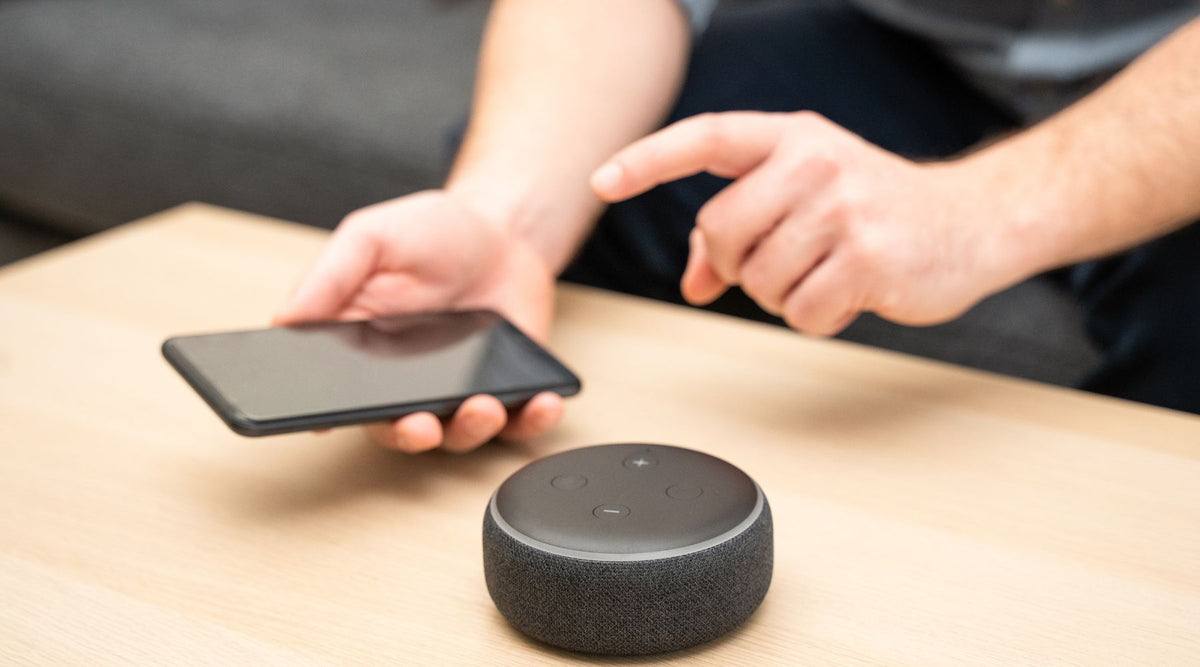

Bluetooth speakers, there are numerous options available in the market. Before making a purchase, it's important to consider certain factors to ensure you choose the right Bluetooth speaker for your needs. This article highlights five key things to consider, including bluetooth version, bluetooth codes, voice control, multi-room, cable types so that you can make an informed decision and enhance your audio experience with the perfect bluetooth speakers.
Bluetooth Version
Differences between Bluetooth 4.0 and 5.0?
Most Bluetooth speakers are equipped with Bluetooth 5.0 now, and the older 4.2 is somewhat outdated. Bluetooth 5.0 excels in many aspects compared to Bluetooth 4.0. The wireless range of Bluetooth 5.0 is four times that of 4.0, reaching a maximum of 120 meters. In terms of music transmission speed, Bluetooth 5.0 has a speed of 2Mbps, which is twice that of 4.0.
Some older models, although using Bluetooth 4.0, still perform well. While Bluetooth and sound quality are not strictly correlated, for beginners or those new to audio, choosing a newer version is a safer choice to avoid potential issues.
Bluetooth codecs
Three most well-known Bluetooth codecs include AptX Adaptive, AptX HD, and LDAC. Each has its supporters, and there is no absolute good or bad.
AptX HD
Aptx HD is Widely adopted, providing the highest 48kHz/24bit and encoding bit rate of up to 576kbit/s, improving distortion compared to the previous AptX LL.
AptX Adaptive
AptX Adaptive lightly more power-consuming than AptX HD, dynamically adjusts audio quality and latency based on signal type and wireless environment.
LDAC
Developed by SONY, supporting high-resolution audio streaming at 24bit/96kHz with a rate of up to 990 kbps. Efficient data compression with few brands utilizing LDAC codecs.
Note that these decoding methods are specific to the Android ecosystem, and Apple devices use AAC or ALAC decoding.
Comparison of Bluetooth Codecs
For people who really want to dig in the bluetooth codecs, below is a comparison of almost all bluetooth codecs table for your reference.
| Low Bit Rate | Max Bit Rate | Bit Depth | Max Freq. | Latency | |
| SBC | 192 kbit/s |
328 kbit/s |
16-bit | 48 kHz |
Bad 200ms |
| AAC | 128 kbit/s |
320 kbit/s |
16-, 24-bit | 44.1 kHz |
Bad 200ms |
| LC3 | 160 kbit/s |
392 kbit/s |
16-, 24-, 32-bit | 48 kHz |
Good |
| aptX | 352 kbit/s |
384 kbit/s |
16-bit | 48 kHz |
Average <180ms |
| aptX LL | 384 kbit/s |
384 kbit/s |
16-bit | 44.1 kHz |
Best <50ms |
| aptX HD | 576 kbit/s |
576 kbit/s |
16-, 24-bit | 48 kHz |
Bad 200ms |
| aptX Adaptive |
279 kbit/s |
420 kbit/s |
16-, 24-bit | 48 kHz |
Good 80ms |
| LDAC | 330 kbit/s | 990 kbit/s | 16-, 24-bit | 96 kHz |
Bad 200ms |
| LHDC | 400 kbit/s | 900 kbit/s | 16-, 24-bit | 96 kHz |
Bad 200ms |
| LHDC LL | 400 kbit/s | 600 kbit/s | 16-, 24-bit | 48 kHz |
Best 30ms |
| Samsung Scalable |
88 kbit/s | 512 kbit/s | 16-, 24-bit | 96 kHz |
n/a |
Voice Control
Many bluetooth speakers can now be controlled not only for playing music but also through voice assistants like Siri, Google Assistant, and Alexa. Compatibility depends largely on your phone brand.
Is it Multi-Room?
Sometimes one speaker is not enough. Thanks to advances in wireless technology like Bluetooth and Wi-Fi, multi-room playback is achievable. Ensure devices use the same technology for seamless connection. Popular solutions include DTS Play-Fi, FireConnect, and BluOS.
Type-C and Optical Input
While wireless and Bluetooth speakers are prevalent, wired input is still essential for vinyl and CD players. Type-C input is more efficient than Micro USB, providing shorter charging times and longer music playback. Optical input is advantageous for connecting to smart TVs, ensuring unaffected audio quality.
Compared to Wireless Speakers,
The Advantage of bluetooth speakers
Bluetooth 5.0 is compatible with most smartphones, offering the convenience of connecting multiple devices to one speaker. Bluetooth speakers are ideal for outdoor use and portable scenarios where internet access is not required.
The Disadvantage of bluetooth speakers
Lower transmission speed (2 Mbps) compared to Wi-Fi in the 2.4 GHz band (up to 600 Mbps). For those highly valuing audio quality, it's recommended to choose speakers with Wi-Fi connectivity and support for lossless audio.
Summary
Before purchasing a Bluetooth stereo, there are five important considerations to take into account. The first is the Bluetooth decoding method, Andriod users can refer to the above mentioned Bluetooth decoding method, the newer the Bluetooth technology is, the more advanced it is, so it is recommended to choose the Bluetooth version of the technology above 5.0. Secondly, consider whether there is a need for cell phone voice control. Thirdly, consider whether the Bluetooth audio supports multi-room playback to increase the convenience of multi-sharing and the richness of music. Lastly, if you need to connect to a smart TV and play CDs, make sure that your Bluetooth stereo supports Type-C and Optical input.
The DUET MK3 is a integrated all-in-one stereo system that offers support for both Bluetooth and WiFi AirPlay. If portability is not a concern, the DUET MK3 goes above and beyond with its additional features, including multi-room AptX HD codecs. Apple users can enjoy excellent sound quality through AirPlay, while Android users can benefit from Bluetooth connectivity and AptX HD decoding. Furthermore, Android users can also experience near-lossless music streaming through DTS Play Fi with KKBOX, Spotify.
See DUET MK3's demo locations here.




